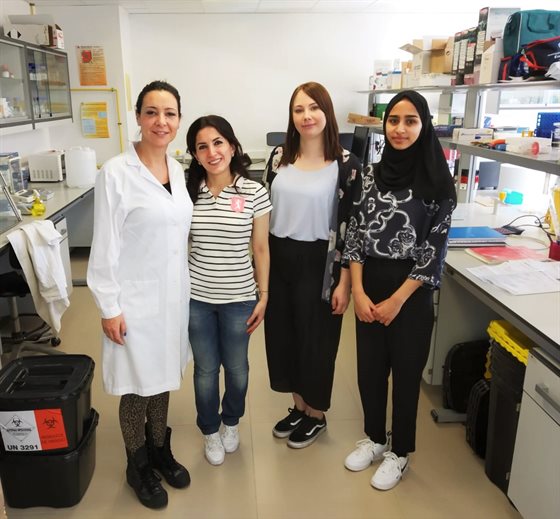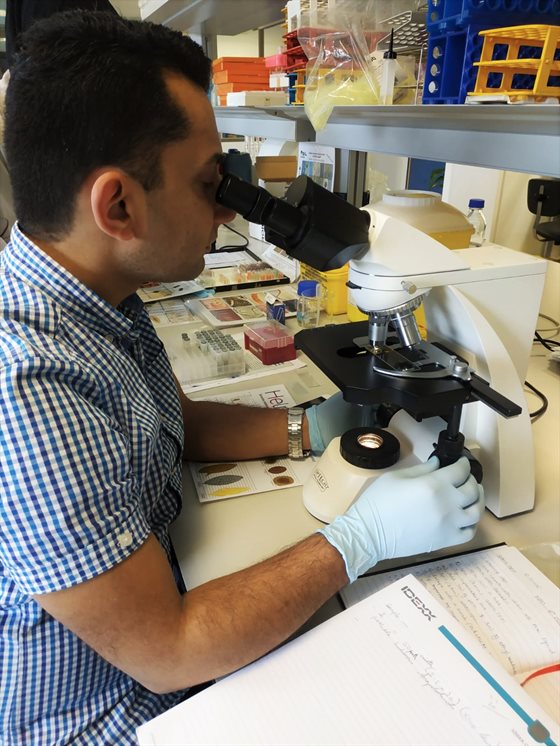Postgraduate research students from De Montfort University Leicester (DMU)’s Faculty of Health and Life Sciences have travelled to a world-leading parasitology laboratory in Spain, to learn how to identify parasite eggs in animal faeces.
Three PhD students, Lucy Owen, Umar Anjum and Zakia Al-Hareth, and one placement student, Jovairia Raim, spent a week in the Laboratory of Parasitology at the University of Miguel Hernandez de Elche (UMH) in Alicante, under the supervision of Dr Lucrecia Acosta.

Parasite worms, also known as helminths, are increasingly being reported as the cause of serious infections in people across the world, so detection at an early stage is vital for the prevention of disease.
During their visit, the students learned how to use a microscope to analyse mammal faeces for helminth eggs, the infectious forms of these parasites, in samples from cats, dogs and deer.
They discovered several types of helminth eggs and larvae that might have the potential to cause disease in humans and are now using these new methods to continue their research at DMU.

“It’s possible for people to come into contact with these animals and be contaminated by their faeces,” PhD student Zakia Al-Hareth, from Syria, explained.
“For example, kids could be playing in the park and their toys or football could be contaminated by the faeces. Kids will touch their toys and then touch their food without washing their hands, which could give them an infection.”
Zakia believes that the opportunity to go abroad for a week was an extremely valuable experience.
She said: “It’s good for PhD students to learn new techniques and think in new ways. It was great to see how people in a different country work and to have the chance to gain experience where there are different conditions and different criteria.”
RELATED NEWS
PhD student's research to help combat infections caused by parasites
Biomedical Science student makes welcome contribution to fight against fatal disease
PhD student awarded fellowship for her work in STEM
VC2020 Senior Lecturer in Biomedical and Medical Science Dr Antonio Peña-Fernandez, who coordinated the visit, explained that international mobility is an important aspect of PhD research.
He said: “Working internationally with other research groups is a fantastic experience for PhD students and can have a really positive impact on their careers.
“The techniques that these students have been trained in will enable them to carry out important research that can help to prevent diseases in humans.”
Posted on Friday 3 May 2019